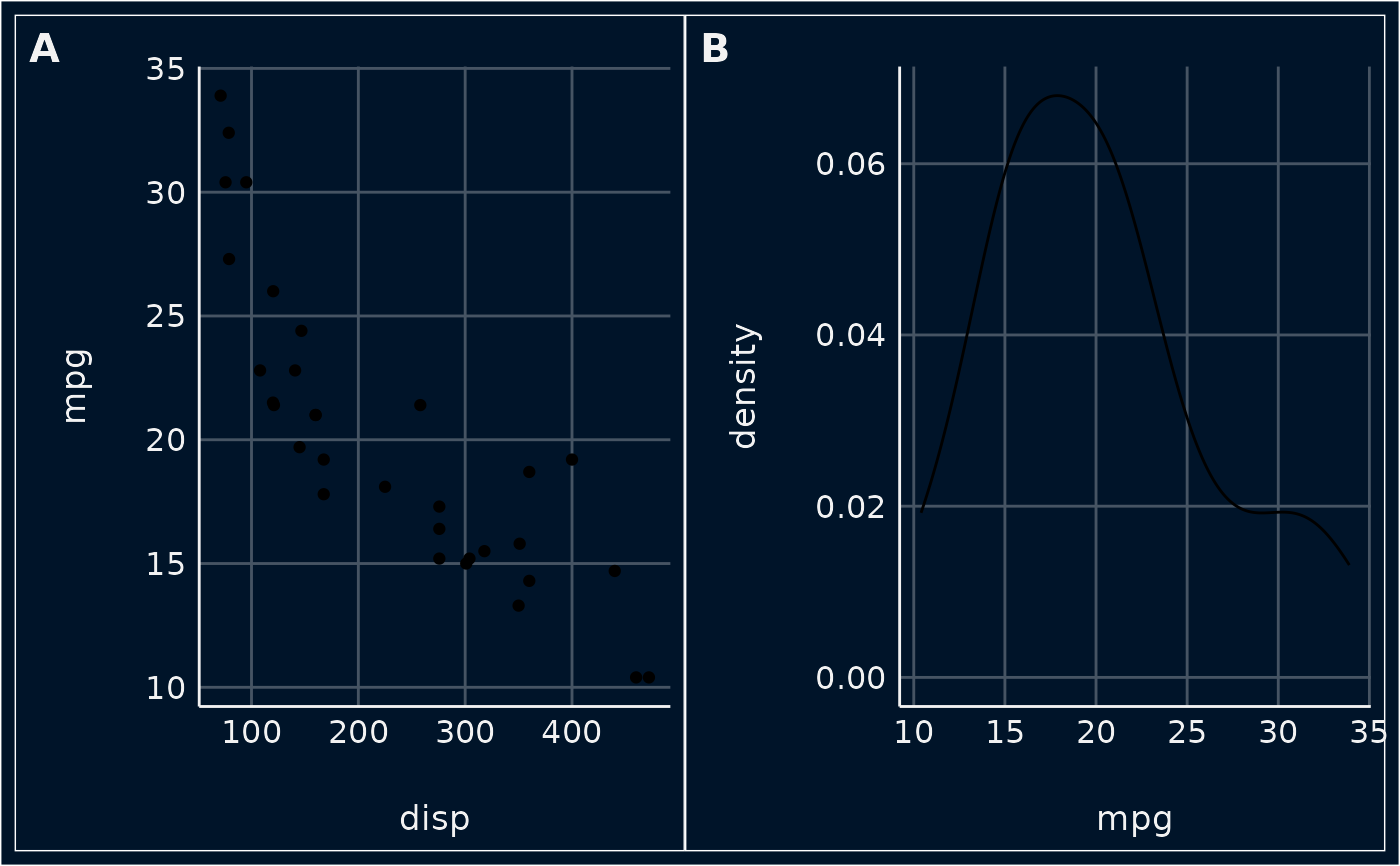In this article, you will learn to use par() function to put multiple graphs in a single plot by passing graphical parameters mfrow and mfcol.
- R Pubs by RStudio. Sign in Register Side by Side Bars in ggplot; by Dave Dunne; Last updated over 4 years ago; Hide Comments (–) Share Hide Toolbars.
- gear) # Side by side bar chart p side by side pie chart p Mathematicss, Computer Science, and Statistics Department Gustavus Adolphus College.
BoxPlot: Boxplot is a plot which is used to get a sense of data spread of one variable.The plot displays a box and that is where the name is derived from. The top line of box represents third quartile, bottom line represents first quartile and middle line represents median.
Sometimes we need to put two or more graphs in a single plot.
R par() function
We can put multiple graphs in a single plot by setting some graphical parameters with the help of par() function. R programming has a lot of graphical parameters which control the way our graphs are displayed.
The par() function helps us in setting or inquiring about these parameters. For example, you can look at all the parameters and their value by calling the function without any argument.
You will see a long list of parameters and to know what each does you can check the help section ?par. Here we will focus on those which help us in creating subplots.
Graphical parameter mfrow can be used to specify the number of subplot we need.
It takes in a vector of form c(m, n) which divides the given plot into m*n array of subplots. For example, if we need to plot two graphs side by side, we would have m=1 and n=2. Following example illustrates this.
This same phenomenon can be achieved with the graphical parameter mfcol.
The only difference between the two is that, mfrow fills in the subplot region row wise while mfcol fills it column wise.
R Show Plots Side By Side
Same plot with the change par(mfcol = c(2, 2)) would look as follows. Note that only the ordering of the subplot is different.
More Precise Control

The graphical parameter fig lets us control the location of a figure precisely in a plot.
We need to provide the coordinates in a normalized form as c(x1, x2, y1, y2). For example, the whole plot area would be c(0, 1, 0, 1) with (x1, y1) = (0, 0) being the lower-left corner and (x2, y2) = (1, 1) being the upper-right corner.
Note: we have used parameters cex to decrease the size of labels and mai to define margins.
R Ggplot Multiple Plots
The numbers assigned to fig were arrived at with a hit-and-trial method to achieve the best looking plot.
- PREVIOUS
R Plot Function - NEXT
Saving a Plot in R
Description
Given a list, plots a side-by-side barplot containing the histogramsof the elements
Usage
Arguments
x | a list of numeric vectors |
beside | plot histogram bars for groups side-by-side? |
freq | logical; if 'TRUE', the histogram graphic is a representationof frequencies, the 'counts' component of the result; if'FALSE', probability densities, component 'density', areplotted (so that the histogram has a total area of one).Defaults to 'TRUE' if 'probability' is not specified(does not consider equidistant breaks as in hist) |
probability | an alias for '!freq', for S compatibility |
plot.it | Whether or not to display the histogram. |
... | additional arguments to hist or barplot |
Value
A list including the return value for the first call to hist (itself a list)and the values for the bar heights.
Note
The 'inside' argument to barplot (which is not currentlyimplemented in barplot anyway) is deleted from the argument list. Thedefault value of NULL for freq is for consistency with histbut is equivalent to TRUE.
Two Plots Side By Side In R
Author(s)
Ben Bolker
See Also

hist,barplot